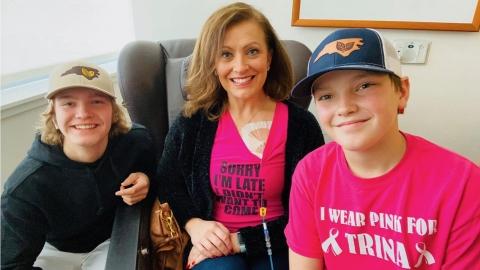After a diagnosis in 2011 of metastatic breast cancer—cancer that has spread beyond the breast and to distant organs—Katrina Cooke has already had many more years with her two sons—now 12 and 14—than she ever thought possible.
When she was diagnosed, the statistics she read told her that most people with her diagnosis live only an additional year or two. But a combination of treatments, including surgery, targeted treatments like herceptin, and anti-estrogen therapies, worked for her. In December 2012, she was declared to have “no evidence of disease.”
While experiencing many ups and downs since then, she has used that “extra time” to become a professional speaker, peer mentor, and advocate. She became a peer mentor with the American Cancer Society and in 2017 joined the Duke Cancer Institute Oncology Patient Advisory Council (OPAC), a volunteer program that gives Duke cancer patients and their caregivers an opportunity to provide their perspective on the patient experience and offer recommendations on how to enhance it. Since 2018, she’s served as community co-chair of the group.
In June of 2020, a spot was found on her rib. Bone can be tricky to biopsy, making bone metastasis difficult to confirm.
She is working with Duke interventional radiologist Alan Sag, MD, and medical oncologist Kelly Marcom, MD, on further diagnosis and treatment.




